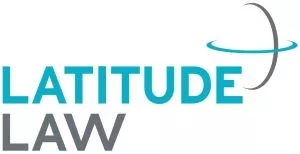Switching from one immigration category to another, from inside the UK, is not always straightforward. Certain routes allow you to stay in the UK under the Immigration Rules by switching visa category, whilst others do not. The updated Points-Based System (PBS), introduced at the end of 2020, has opened more visa categories to in-country switching.
Switching can be a complicated process, often more complex than an initial visa application, and it is important to get this right. Whilst restrictions of many categories have eased with the new system, others continue to be strict on who is permitted to switch. Applying to switch your visa under a category where switching is not permitted from inside the UK leads to mandatory refusal. In cases where you cannot switch from your current visa status to another from inside the UK, you are required to leave the UK and apply for UK Entry Clearance from your country of nationality or usual residence.
Below is a summary of who can and cannot switch, and into which categories. This is not exhaustive of all scenarios under the Immigration Rules; if you would like to speak to an expert about your specific circumstances, you can call us on 0161 234 68007 (Manchester) or 0203 752 6620 (London).
Which Visa categories can't you switch from?
For many routes, it is not possible to switch in-country from the following visa categories:
- Visitor
- Short-term Student
- Parent of a Child Student
- Seasonal Worker or Domestic Worker.
Which Visa categories can you switch to/from?
The updated PBS has made switching in-country easier in many cases.
Economic Categories (highly skilled, investors, workers, and students)
For most economic routes, it is possible to switch from any visa, other than those listed above, as long as you are able to meet all other requirements for the particular visa you want. However, some categories are stricter. Switching to the Investor route is only possible in-country if you are currently here on a Skilled Worker, Entrepreneur, or Student visa.
New rules also allow Intra Company transferees to switch into the Skilled Worker route from inside the UK, as the cooling-off period has now been abolished. This could give individuals a possible route to settlement if they wished to remain in the UK. Note that cooling-off still applies to Religious or Charity Workers.
Individuals here on a student visa are permitted to switch to other economic categories e.g. Skilled Worker. The new Graduate route, which went live in July 2021, also offers students the opportunity to continue their stay in the UK and to work post-studying. You are only able to apply to this route from inside the UK, however, it does not lead to settlement.
Family Categories (partners, children, parents, adult dependent relatives)
It is possible to switch amongst family routes. For example, an applicant who enters as a partner could secure an extension as a parent if the marriage breaks down but there is an ongoing relationship with a child. It is also possible to secure permission to stay in the UK based on private life rather than family life where the specific private life requirements are met.
Applicants in these categories are now also able to switch to economic categories (e.g. Skilled Worker or Innovator) from inside the UK. Only individuals who are currently living in the UK as a parent of a Student Child are not permitted to switch to these categories; a fresh overseas application would be required instead.
Religious Categories (minister of religion, religious worker)
Under the new system, it is easier for individuals to switch into the Minister of Religion category. Inexperienced religious workers could potentially secure entry clearance as Religious Workers, and then switch into the Minister of Religion category from inside the UK – once they are able to undertake a key leading role within their faith-based organisation or religious order, and once their English language skills have improved.
The content of this article is intended to provide a general guide to the subject matter. Specialist advice should be sought about your specific circumstances.

